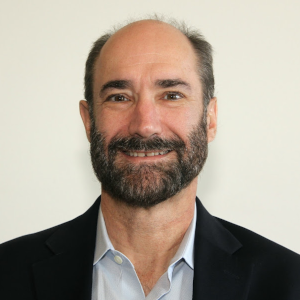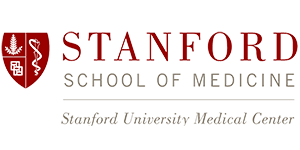Session Abstract – PMWC 2022 Silicon Valley
- Beyond the Human Genome & non-profit Phenome Health
- Lee Hood, Providence Health - UC Precision Medicine Programs: Achievements and Challenges
Session Chair: India Hook-Barnard, EBRC
- Keith Yamamoto, UCSF
- Clara Lajonchere, UCLA
- Frederick J Meyers, UC Davis Health - T2T: Long-Read Sequencing Unlocks The Final Gaps In The Human Genome
- Karen Miga, UCSC - Ultra-rapid Nanopore Genome Sequencing in a Critical Care Setting
- John E. Gorzynski, Stanford
- Precision Approaches to Chronic Disease (PANEL)
Session Chair: Jennifer Lovejoy, Calibrate
- Noel Mueller, Johns Hopkins
- Lee Hood, Providence Health
- Megan Ruth Mahoney, Stanford - DNA-based Weight Loss Interventions: What Have We Learned? (PANEL)
Session Chair: Jennifer Lovejoy, Calibrate
- Lu Qi, Tulane University
- Christopher Gardner, Stanford - Advances in Digital Health, Diabetes and Obesity Management (PANEL)
Session Chair: Mike Snyder, Stanford
- Jessilyn Dunn, Duke University
- Jonathan Long, Stanford
- James Galagan, Boston University - Illumina Accelerator Innovation
Session Chair: Amanda Cashin, Illumina Accelerator
- Trevor Levin, Convergent Genomics
- Rhidi Tariyal, NextGen Jane
- Kareem Barghouti, VastBiome - PMWC Showcase
- Jarret Glasscock, Cofactor Genomics
- David Hanna, Thermo Fisher
Session Chair Profile
Biography
Dr. Snyder received his Ph.D. training at the California Institute of Technology and carried out postdoctoral training at Stanford University. He is a leader in the field of functional genomics and multiomics, and one of the major participants of the ENCODE project. His laboratory was the first to perform a large-scale functional genomics project in any organism, and has developed many technologies in genomics and proteomics. Seminal findings from the Snyder laboratory include the discovery that much more of the human genome is transcribed and contains regulatory information than was previously appreciated (e.g. lncRNAs and TF binding sites), and a high diversity of transcription factor binding occurs both between and within species. He launched the field of personalized medicine by combining different state-of–the-art “omics” technologies to perform the first longitudinal detailed integrative personal omics profile (iPOP) of a person, and his laboratory pioneered the use of wearables technologies (smart watches and continuous glucose monitoring) for precision health.
Session Chair Profile
Biography
Amanda Cashin, PhD is Co-Founder and Global Head of Illumina For Startups, which is focused solely on creating an innovation ecosystem for the genomics industry by partnering with leading venture capital investors and entrepreneurs to create, launch, and grow genomics startups. Illumina for Startups initiatives include Illumina Accelerator, founded in 2014, and Sequoia Capital China Intelligent Healthcare Genomics Incubator, Powered by Illumina, founded in 2021. Our global team has operations in San Francisco, CA, Cambridge, UK, Shanghai, China, and Melbourne, Australia. Previously, Amanda was Senior Vice President of Alexandria Venture Investments at Alexandria Real Estate Equities, Inc. She earned a Ph.D. in Chemical Biology from the California Institute of Technology and graduated summa cum laude with a Bachelor's degree in Physical Organic Chemistry from the University of Colorado, Boulder.
Talk
Building Breakthrough Genomics Startups | Illumina Accelerator
Session Chair Profile
Biography
Clara Lajonchere, PhD is the Deputy Director for the UCLA Institute for Precision Health, Co-Director of the Clinical Neurogenetic Research Program, and Adjunct Professor of Neurology in the David Geffen School of Medicine at UCLA. Dr. Lajonchere’s background reflects a wide range of professional, clinical, and research activities across central nervous system disorders. She has spent her career on cross-cutting issues in psychiatric genetics and translational medicine. Through the UCLA Institute for Precision Health, Dr. Lajonchere is working collaboratively with thought leaders across the state of California to advance precision medicine and improve outcomes for patients. She currently serves as chair of the California Precision Medicine Advisory Council for the Governor’s Office of Planning and Research.
Speaker Profile
Biography
Dr. Hood is currently on the faculty of the Institute for Systems Biology and CEO of Phenome Health, a non-profit organization driving the emergence of precision population health. He received an MD from Johns Hopkins Medical School and a PhD from Caltech. A professor at Caltech for 22 years, a co-founder and chairman of the first cross-disciplinary biology department at the University of Washington for 8 years; a co-founder and president of the Institute for Systems Biology for 18 years—the first organization promoting systems biology. He has co-founded 17 biotech companies; has 18 honorary degrees from leading institutions all over the world. He is in three US National Academies: Science, Medicine and Engineering. He developed the automated DNA sequencer that made the human genome sequence possible. He is pioneering data-driven and systems-driven 21st century medicine to transform healthcare.
Talk
Precision Population Health: A Million Person Project
Beyond the Human Genome (BHG), a second Human Genome Project, will analyze the genomes/phenomes for one million people over 10 years. BGH’s mission is to employ this data-driven approach to make a life of health accessible to all people. We are looking for partners from across the healthcare spectrum.
Speaker Profile
Biography
Dr. Lu Qi is Director of Tulane Personalized Health Institute, and Director of Tulane University Obesity Research Center. His research focuses on nutritional epidemiology, nutrigenomics and nutrigenetics of obesity, diabetes, and cardiovascular diseases. As the Principal Investigator, he has led more than ten projects funded by NIH, American Heart Associations, and other funding agencies. He has published more than 400 scientific publications in peer-reviewed journals, including the high-impact journals such as N Engl J Med., JAMA, BMJ, Circulation, J Am Coll Cardiol., Eur Heart J., Nature, Nature Genetics and Nature Medicine. He has also written more than 10 book chapters and edited a textbook entitled ‘Gene-Environment Interactions and Human Diseases’. Dr. Qi is a fellow of American Heart Association (FAHA), American College of Nutrition (FACN), and The Obesity Society (FOS).
Speaker Profile
Biography
I am a tenure-track Assistant Professor in the Department of Epidemiology at Johns Hopkins Bloomberg School of Public Health, a Core Faculty member in the Welch Center for Prevention, Epidemiology and Clinical Research. My research examines the nutritional, microbial, and environmental determinants of health across the lifespan, with the ultimate goal of identifying modifiable targets for chronic disease prevention and treatment. I believe that primary prevention of disease risk factors, in early life and among high-risk populations, provides the greatest opportunity to curb contemporary chronic disease epidemics and reduce health disparities. Accordingly, many of my investigations, in both local and global contexts, are in young, racially and ethnically diverse populations. A large part of my research focuses on the role of the human microbiome in nutrition and disease. I am particularly intrigued by the microbiome because it is amenable to intervention.
Talk
Sharpening Nutrition Science with the Microbiome
In this talk I will provide an overview of how the intestinal microbiota and their metabolites can inform more precise approaches to prevention and treatment of nutrition-related cardiometabolic diseases, including obesity, type 2 diabetes and obesity in both children and adults.
Speaker Profile
Biography
For ~30 years Christopher Gardner has studied what to consume and to avoid for optimal health, and how best to motivate individuals to achieve healthy dietary behaviors. Some of the dozens of human nutrition intervention trials he has conducted include studies of garlic, omega-3 fats, soy phytoestrogens and antioxidants. Among his most cited studies are the A TO Z (JAMA 2007) and the DIETFITS (JAMA 2018) weight loss diet trials. The DIETFITS trial examined the possibility that a 3-SNP multilocus genotype would predict differential weight loss success on a Healthy-Low-Fat vs. a Healthy-Low-Carb diet among more than 600 overweight and obese adults. His interests in this area of personalized nutrition continue with his participation in the Trans-NIH Consortium: Randomized Controlled Trials of Lifestyle Weight Loss Interventions for Genome-wide Association Studies. He is also working on personalized nutrition explorations with other investigators.
Talk
DNA-based Weight Loss Interventions: What Have We Learned?
The 2018 DIETFITS study tested the hypothesis that a 3-SNP genotype pattern would be an effect modifier of weight loss on a healthy low-fat vs. a healthy low-carb diet. The hypothesis was not supported. NIH convened a consortium too look at this question across studies. What have they learned?
Speaker Profile
Biography
At Stanford, the Long laboratory studies the signaling pathways that control mammalian energy metabolism. Dr. Long’s contributions in the areas of metabolism and energy homeostasis have been recognized by numerous awards including the NIDDK DP1 Catalyst Award, the NIH Pathways to Independence Award, and the Ono Pharma Foundation Breakthrough Sciences Award. The long-term goal of this work is to discover new molecules and physiologic pathways that can be translated into therapeutic opportunities for obesity, metabolic disease, and other age-associated chronic diseases.
Speaker Profile
Biography
Jessilyn Dunn is the Director of the Duke BIG IDEAs Laboratory which is focused on biomedical data science and mobile health for digital biomarker discovery. Dr. Dunn is PI of the CovIdentify study to detect and monitor COVID-19 using mobile health technologies, which is built upon the team’s previous infection detection work through the DARPA Prometheus and Biochronicity programs. Dr. Dunn was an NIH Big Data to Knowledge (BD2K) Postdoctoral Fellow at Stanford, an NSF Graduate Research Fellow at Georgia Tech & Emory, and a visiting scholar at the CDC and the National Cardiovascular Research Institute in Madrid, Spain. Her work has been internationally recognized with media coverage from the NIH Director’s Blog to Wired, Time, and US News and World Report.
Speaker Profile
Biography
Kareem's background is in Strategy & Operations and Sales & Marketing. Kareem was an early employee at a fast-growing tech startup, Wildfire Interactive, that Google acquired for $450M. He spent 5 years at Google leading the data integrity of Google’s advertising business which oversaw 1000s of sales reps globally and billions of dollars in revenue. He was part of the core product team to launch an online education portal to millions of users globally. He also supported the Google X team seeking novel moonshot technologies to translate to commercial products. He was recognized as one of the top sales reps globally for the New Business Sales team. In 2017, Kareem left his corporate career to participate in a health innovation Fellowship at the Texas Medical Center Innovation Institute in Houston, Texas, where VastBiome was born.
Talk
The Next Wave of Natural Product Medicines
The gut has been associated with various health related outcomes. Yet how these natural medicines interact with the human immune system is unknown. VastBiome is mapping out the gut-immune axis to translate the small molecules into starting points for therapeutic discovery.
Speaker Profile
Biography
Ridhi Tariyal, co-founder and CEO of NextGen Jane. Before founding NextGen Jane, Ridhi led the operations and finances of a $10M genomic endeavor in West Africa for the Broad Institute. Most of Ridhi's career has been in healthcare, from operational roles in a big pharmaceutical company (Bristol-Myers Squibb) to smaller entrepreneurial organizations (Embrace).
Speaker Profile
Biography
The Galagan lab is an interdisciplinary lab with expertise in genomics and next-generation sequencing, molecular biology and microbiology, computational biology, and various engineering disciplines. The lab performs research and develops biomedical applications at the interface of engineering, computer science, molecular biology and microbiology. Dr. Galagan pioneered the concept of screening bacteria for molecular sensing proteins and developing these proteins into electronic sensors. He leads an interdisciplinary collaboration among colleagues at Boston University to develop and commercialize a range of applications based on these novel biosensors.
Speaker Profile
Biography
Jarret Glasscock is a geneticist and computational biologist. Prior to co-founding Cofactor Genomics, Jarret was faculty in the Department of Genetics at Washington University and part of The Genome Institute. While at WashU, he was involved in the Human Genome Project, published the first Cancer Genome, lead the Institute’s Computational Biology Group, and was part of the Institute’s Technology Development Group tasked with characterizing the first RNA-seq experiments on early instruments such as 454 and Illumina/Solexa(Serial #1). Jarret’s work to leverage signals in RNA to propel Precision Medicine Initiatives has been covered by Genetic Engineering News (GEN), Tech Crunch, STAT News, and Wired Magazine. He is a member of the Personalized Medicine Coalition, International Society for Computational Biology, American Association for Cancer Research and is a Y Combinator Alum.
Talk
TCell Subtype Profiling Measures Exhaustion & Predicts PD-1 Response
Speaker Profile
Biography
Dr. Frederick Meyers is Distinguished Professor of Internal Medicine at UC Davis Health. His career interests include multifaceted investigations of advanced cancer and training the next generation of scientists. He has served UC Davis as Chief of Hematology/Oncology, Chair of the Department of Internal Medicine and Vice Dean of the School of Medicine. He currently leads the Center for Precision Medicine and Data Sciences. Additionally, he is Associate Director for Education, Training and Career Development for our Comprehensive Cancer Center, and he founded "Academic Research Careers for Medical Doctors (ARC-MD)", a medical school pathway to train the next generation of diverse faculty. Dr. Meyers' national leadership in career development has been recognized with many training grants, service to NIH, and as President of the Association of Clinical and Translational Science 2019-2020. In 2020 he received the Chancellor’s Achievement Award for Diversity and Community Service.
Talk
A Comprehensive University Vision For Precision Medicine
Precision Medicine and Data Sciences at a comprehensive university promotes new teams by uniting heath care and population health with training and career development, with seven colleges, and valued community partners.
Speaker Profile
Biography
Primary focus of work is global market development in the predictive genomics space. Engaging with organizations and institutions seeking to implement a full program - from sample collection to physician/patient reporting - using a patient’s whole genome data for common disease risk and ADR (adverse drug reaction) risk prediction. Working to establish a functioning ecosystem and workflows that show healthcare providers a path to implementing such programs system-wide and at scale.
Talk
Implement Predictive Genomics Today, Improve Healthcare’s Tomorrow
Healthcare costs represent an outsized portion of all developed country’s GDP. Predictive genomic posits that keeping populations healthier allows providers to manage patient health rather than manage disease. Risk prediction through whole genome profiling of healthy individuals is the key.
Speaker Profile
Biography
At Convergent Genomics we develop next generation diagnostic tests to non-invasively diagnose and monitor cancer through urine.
Speaker Profile
Biography
In 2019, Dr. Miga co-founded the Telomere-to-Telomere (T2T) Consortium, an open, community-based effort to generate the first complete assembly of a human genome. Additionally, Dr. Miga is the Director of the Reference Production Center for the Human Pangenome Reference Consortium (HPRC). Central to Dr. Miga’s research program is the emphasis on satellite DNA biology and the use of long-read and new genome technologies to construct high-quality genetics and epigenetic maps of human peri/centromeric regions.
Speaker Profile
Biography
John studied at the University of London’s, Royal Veterinary College where he earned a degree in veterinary medicine and continued his education at Stanford University where he obtained a PhD in genetics. John is now a postdoc in the Euan Ashley lab at Stanford university and is interested in utilizing long read (nanopore) genome sequencing to improve the health of human and non-human patients.
Talk
Ultra-rapid Nanopore Genome Sequencing in a Critical Care Setting
Genetic disease is a major contributor to critical care hospitalizations. Early genetic diagnosis can guide clinical management, yet the turnaround time for whole genome diagnostic testing is commonly months. We aimed to reduce the turn-around time for whole genome sequencing diagnostic test to be hours enabling rapid clinical decision making required for critically ill patients.
Speaker Profile
Biography
Dr. Mahoney has expertise in precision health, practice transformation, and care model redesign in large academic health care systems. She has served in senior level positions at AMCs in the U.S. and internationally, developing innovative and transformative approaches to proactive and personalized team-based primary care that empowers patients, health care providers, and communities. As Chief of the Medical Staff, she provides oversight of quality, safety, and professionalism activities of the 3000 physicians within Stanford Health Care. Dr. Mahoney earned her B.A in Molecular and Cellular Biology at the University of California Berkeley, her M.D. at the University of California San Francisco, and her M.B.A. at Brandeis University.












































